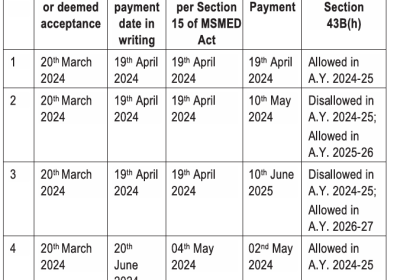
Introduction of Various kinds of Audit & Assurance for the Company
1. Internal Audits
For ensuring growth, companies adopt the fresh framework which focuses on cost reduction and improving the quality of products and services. A strategically devised auditing arena plays an important role in achieving various challenges in business. The internal audit ensures that a company operates on set standards and all its governance and risk management departments are in flow per the company law. Internal auditors deal with matters that are fundamentally important to the prosperity of an organization. Their focus is on major matters such as reputation and growth.
Risk management assists the member of the boards in fulfilling their duties towards the stakeholders and the organization. Through evaluation, recommending improvement in the process, and supervising the implication of management strategical actions the internal auditors help any organization achieve its business goals. If any risk is encountered, the internal auditor directly reports to the senior-most person of executive management. Safety risks, supplier failure, financial or marketing risks account for some of the major risks an organization faces. The internal auditor acts as a catalyst for an organization’s improved operational management.
CA Rajput undertakes major business aspects and analyzes risk possibilities for initiating a different strategy which helps the client maintain a focused internal audit function. We support in improving operational efficiency and cost reduction through effective implementation of best business practices. Business competitiveness is modified for eyeing the broader vision and establishing a firm base in the corporate world. Our experts focus on depth and breadth of experience in internal audits across a diverse array of industries and aim at resolving issues through propriety tools and methodologies.
2. Management audit
Management audit attempts to evaluate various management functions and processes. It involves the assessment of managerial aspects like organizational policies, structures, procedures, and systems for ensuring the proper functioning at the core.
The term “operational audit” goes synonymous with “management audit” owing to its aspect of examining responsibilities and the available resources. The primary motive of a management audit is to support all the departments of an organization in the proper handling of its business operations providing them insight into the company’s objective and passing on of the final judgment with personal recommendations.
CA Rajput by identifying the loopholes in the functioning of the organization recommends ways to rectify it. Organization structure’s adequacy, economic outlook, compliance with the policies, potential utilization o manpower, and resources are the major areas that are evaluated under management audit. Warning organizations of the early signals of the organization glitch and to provide a solution to the complicated problems is what frames the base of effectively conducting management audits. All the initiatives are undertaken to operate in a transparent framework regarding management potential and competencies. They hold a mirror to the company’s structure and conduct comparisons with other companies' benchmarks by analyzing its facts and figures. Revenue optimization and cost reduction are the major wheels that drive any organization to its goals.
The management audit can surface up the company’s weaknesses like lack of technical competencies, the inadequacy of the management information system, the manager’s lack of awareness regarding goals and objectives, and the failure in defining the responsibilities of the members of the company. Undertaking special purpose audits and concretizing the management structure of an organization is what we aim through our esteemed management audit services.
3.Tax Audit
A tax audit is an examination of a company’s tax return for ensuring that the financial information has been correctly reported. The IRS through a computer scoring system analyses tax deductions and compares the taxpayer's data and undertakes tax auditing procedures. This audit is conducted as per the income tax guidelines of the Income Act 1961. The audit is applicable to the income exceeding 25 lacks or a turnover of 1 crore. A tax audit is conducted under 44 AB of Income Tax for ensuring that the income taxpayer has maintained the records and the book of accounts. The discrepancies are noted down by the auditor after the methodological examination of the book of accounts and information like tax depreciation and compliance of various income tax law provisions is analyzed.
We at CA Rajput share considerable experience in supporting our clients in tax audits and tax disputes at an administrative level. We help in maintaining a smooth flow of the audit activities which are conducted by the tax authorities and increase efficiency in the preparation of audits. The tax auditing report gets furnished in the chartered accountant’s capacity and after the report gets uploaded it requires to be accepted or rejected by the taxpayer in their login portal. The procedures are conducted again in a case of rejection of the report. It is necessary to go for a tax audit and non-compliance with a compulsory audit can make the taxpayer face stringent penalties like Rupees one Lakh Fifty thousand, or 0.5 % of the total sales or turnover. We help you finish of the tax audit proceedings in a legal way without encountering any complications.
4. Statutory Audit
A statutory audit is an audit that is made compulsory by the law to ensure that the books of records presented before the regulators are authentic and justiciable. All the LLPS whose contribution exceeds 25 lacks or those with turnover exceeding Forty lakhs are required to get their accounts audited annually. The auditors ensure that the report presented by them complies with the law of Revised SA 700, SA 705, And SA 706. During the preparation of the report, the auditors ensure that the report covers all the essential details like deposits, qualification of advances, interest income, and interest expenses. It is done for the government-owned companies in a way to gather insight into the expenditure of the tax collection along with the investment amount on any project.
The report is prepared undertaking methods that may vary with different law authorities and is submitted to the concerned municipal law authority. Reviewing the accounting, financial, operation and internal controls for examining efficiency and effectiveness of the company’s procedures are the major prerogative of the statutory auditors. The financial reports are cross-checked for arriving at the right conclusion. The statutory audits help in running the business maintaining both financial performance and glitch-free operations safeguarding the management of penalties and prosecutions of non-compliance. By adhering to global standards, we at CA Rajput conduct statutory audits for various organizations pertaining to any industry, and the process is completed within few days of its initiation undertaking a strategic plan with an aim of enhancing the productivity of the organization.
5. Informational System Audit
The information system audit ensures that the IT systems are effective and provide reliable information to the users for the completion of their intended benefits. For ensuring the proper safeguarding of the company’s assets and data integrity by the IT systems in sync with achieving an organization’s business goals and objectives the audit is conducted. It not only undertakes a business’s systems but also a company’s financial systems. Network infrastructure components, databases, and data physical centres are continuously evolving and, in such cases, it becomes crucial to have a clear insight into a company’s IT systems for better productivity and seamless initiation of the business processes. Technological advancement has modified the IT auditing system at a grand level. It analyses an organization’s financial statements and accounting records for the effective traceability of the transactions.
The information system brings forth the fresh style in which companies interact and the organization is structured. It enhances the company’s core competencies and lowering the cost of communication and coordination between the supply chains lay forward a different approach for effective information communication and has less to expansions of a company’s diaspora in terms of effective work atmosphere dominated by a secured network of information system. Auditing Data security, application security, data service, and centers and ensuring that the system complies with SOX norms are our topmost priorities. For ensuring that your organization complies with the rules pertaining to It governance, the professionals at CA Rajput evaluate your IT procedures in accordance with the ISACA norms representing standards for managing IT-based services effectively.
6.SOX and Clause 49
The Sarbanes Oxley Act of 2002 is a federal law that is designed to administer the financial reporting arena for finance professionals. It aims at sheltering the investors by modifying the reliability of corporate closures and reviewing the legislative audit requirements. This law was created to protect the shareholders, public, and employees from accounting errors and illegal financial practices.
The Sarbanes Oxley Act 2002 requires the public companies to perform internal audit tests, entrusting the directors and managers with the responsibility of ensuring accuracy in the financial statements, and if encounter any failure in abiding by the SOX policies, the companies are liable to face strict penalties for the same.
Clause 49 says that CEOs and CFOs have to ensure and certify their control over both internal and financial processes. Reviewing the balance sheets, profit and loss accounts, director’s report, and the cash flow statement rests under their control. The companies are required to make a proper plan for identifying significant risks and strengthen internal control to mitigate such risks.SOX requires each company’s external auditor to attest and report on the assessment of management as per Section 404 “Assessment of internal controls.” The internal report is generated based on the assessment and is presented before the shareholders.
At CA Rajput we aim at bringing the issue restricting the successful implementation of SOX 404 on the table and to analyze whether an organization’s management bears a suitable and effective network for the company’s internal control over financial reporting. We aim at boosting the company’s productivity in achieving its goals abiding by SOX and Clause 49 and reducing costs.
7. Due Diligence Audit
Due diligence is the monitoring of a company’s finances before entering into any agreement regarding the purchase of the company. The investigation involves a comprehensive examination of a company’s legal operational, accounting, property, and tax issues. It is required for the purchaser to analyze the potential of the company in terms of risks, liabilities, policies and procedures, opportunities, and benefits it involves. It is basically digging out of a company’s essential details for the purchaser to take the right decision. A professional business appraiser like CA Rajput will assist you by undertaking a proper investigation process. An auditor aims at considering the company of all the important aspects of arriving at a justiciable view of a company’s financial position and performance. The due diligence focuses on providing clear insight to the buyer of the company’s historical sales, working capital requirements, key accounting information systems, determining forceful employees contact and sustainable economic funding, how the products or services the company provides stands in contrast with its competitors.
The due diligence process gets completed within 60 days of its initiation. It also considers non-financial business matters which include insurance and risk assessment, reviewing systems, and management team evaluation. The CA Rajput due diligence audit covers all comprehensive methods of reviews like observation, analysis, and interviews. Tools like structure and trends analysis are used by the auditors for proper investigation in regard to the law. We aim at maximizing a company’s value and share considerable experience in due diligence audits by advising clients to analyze the minor to major issues which will help them make the right decision.
Regards

















